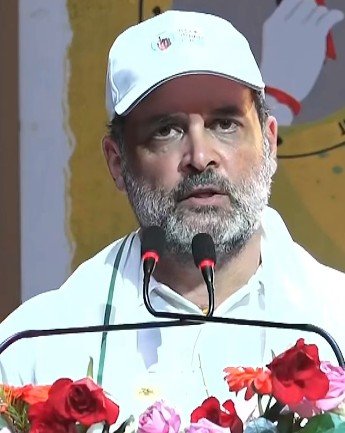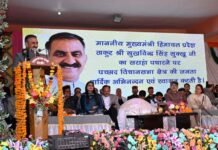This is a web generated news report.
In a dramatic escalation of India’s national political discourse, Congress leader Rahul Gandhi delivered a fiery speech at Patna on September 1, 2025, promising to unveil what he termed a “hydrogen bomb” of evidence exposing massive electoral fraud allegedly orchestrated in Maharashtra, Madhya Pradesh, and, pivotally, Haryana. His explosive claims — charging the Election Commission with colluding with the BJP to manipulate voter rolls and disenfranchise up to 6.5 million marginalized voters — have sent shockwaves through political circles, intensifying the debate over India’s democratic processes as the nation gears up for pivotal elections.
Electoral Allegations Rock the Heart of Haryana Politics
Gandhi’s assertion struck a deep chord in Haryana, a state crucial to national politics and frequently at the center of electoral battles. By spotlighting Haryana among the states affected, Gandhi amplified concerns over the sanctity of the voting process, calling into question institutions that safeguard democracy. The Congress leader’s allegations suggest systematic removal of voters from marginalized communities — a claim that, if substantiated, could redefine the narrative around inclusivity and fair representation in one of India’s most politically active states.
Political Fault Lines Deepen: BJP vs Congress Rivalry Intensifies
The immediate aftermath of Gandhi’s speech saw Haryana’s opposition parties rallying around these allegations, with Congress leaders and allies demanding urgent investigations and enhanced electoral oversight. On the ground, tensions rose to palpable levels: incidents of clashes between BJP and Congress supporters in several districts highlighted the volatility and deep-seated rivalries that often define Haryana’s political arena. Analysts noted that such confrontations are indicative not only of party competition, but also of the intense public scrutiny of India’s democratic institutions at a critical juncture.
Election Commission Under the Microscope: Calls for Reform and Transparency
Rahul Gandhi’s allegations, though sharply contested by the BJP and refuted by Election Commission officials, have reignited discussions on the need for robust safeguards within election administration. Civil society groups, legal experts, and advocacy organizations have joined the chorus, urging authorities to ensure transparency in voter registration, implement audits, and provide remedies for wrongful disenfranchisement. In Haryana especially, these calls resonate as the state prepares for upcoming polls, with opposition parties poised to leverage the controversy as a rallying point for campaign mobilization.
Context and Implications: A New Chapter in Indian Political Accountability
The wider implications of this controversy extend beyond Haryana, shaping perceptions of electoral integrity, governance, and public trust on a national scale. Gandhi’s “hydrogen bomb” analogy captures not only the urgency but the gravity of the issues at stake. As the nation watches how political actors, institutions, and the electorate respond, the narrative unfolding in Haryana offers insight into both the challenges and opportunities facing Indian democracy in 2025.
Conclusion: Haryana at the Epicenter of India’s Democratic Debate
As political temperatures rise and stakeholders on all sides prepare for intensified scrutiny, Haryana stands at the epicenter of India’s evolving story of democratic accountability. Whether Gandhi’s allegations will lead to concrete reforms or further partisan division remains to be seen, but their impact on this election season is undeniable.
Source: Web generated report from trending Indian news coverage.





